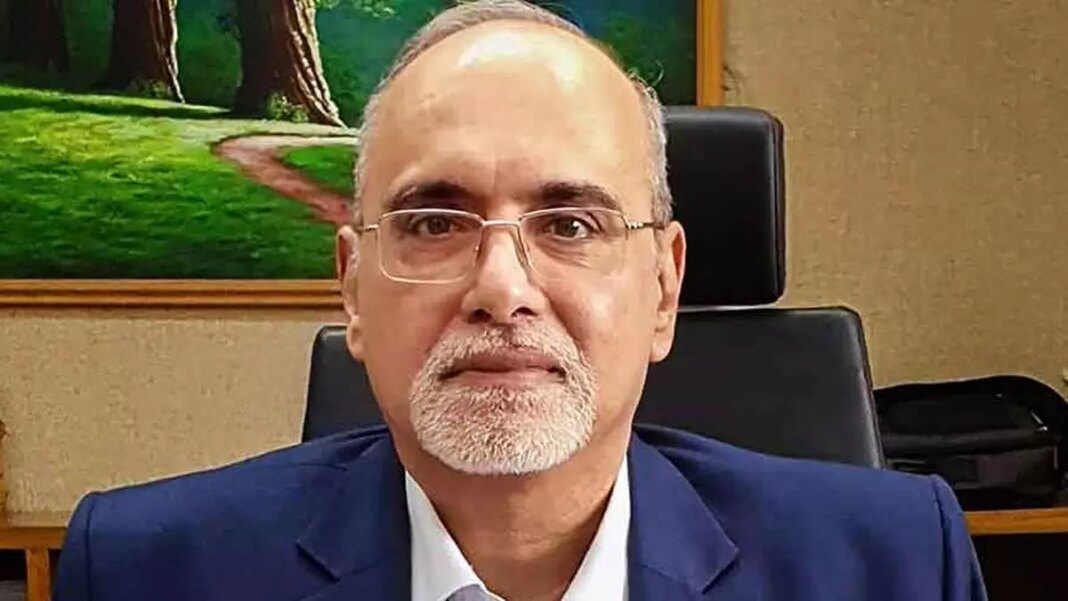India’s goal of becoming a developed economy by 2047 will require it to take a quantum leap in the scale and size of its financial institutions, said RBI Deputy Governor M Rajeshwar Rao.
This will also possibly expose the entities in the financial system and its users to increased amount of risk, he cautioned.
“In view of this, robust governance and effective risk management are going to be the dual anchors that will keep our financial institutions afloat and help them grow sustainably.
“From a macro-perspective, our national aspiration to become a developed economy by year 2047 still requires a stronger foundation of financial institutions in a complex and rapidly evolving financial landscape,” Rao said in his opening remarks at the “High Level Policy Conference of Central Banks in the Global South.”
He observed that besides banks, the existing entities would require easier access to robust capital markets to fund their growing asset books, as along with access to deep financial markets that would enable them to hedge the associated risks on their balance sheets.
Further, there will be entry of new players, products, and services (for example private credit) to meet the growing credit needs. Therefore, an enabling regulatory system would have to be put in place to meet these challenges and to safeguard financial stability without hindering the process of innovation.
Twin-peak approach
As a part of RBI’s policy framework, it has been following a ‘twin-peak approach’ towards regulation, assigning importance to both prudential and conduct related issues, the Deputy Governor said.
From a prudential perspective, banks are required to have robust risk management processes supported by comprehensive credit underwriting practices. The institutions will have to be compliant to standards especially such as capital adequacy, credit quality and liquidity to ensure prudence in their growth.
Rao emphasised that the challenges associated with conduct related aspects are equally sensitive. “When the system grows more complex, the financial products and services also evolve suitably,” he said.
Therefore, the regulated entities need to manage a tricky quadrant of expectations which means enabling rapid digitalization; enhancing need for strong cybersecurity; ensuring strong KYC (know-your-customer) norms; and importantly maintaining excellence in customer service.
Three emerging risks
The Deputy Governor highlighted three emerging risks — from extreme climate events and climate change, from emerging technologies and interconnectedness among entities in the financial system — which are relevant not only for India but for entire world, particularly the global south.
He underscored that as a policy maker, it is still a challenge to quantify the climate related risks and its impact of the real economy and the financial sector.
“The demand for resources to fund the real sector entities to manage physical, transition and adaptation risks can mean new institutions, newer categories of resources and new business models amongst existing institutions. These will be a new challenge for the regulators,” Rao said.
Risks from emerging tech
The Deputy Governor noted that the advent of new processes backed by block-chain, and AI/ML, new products like tokenised assets, and new entities like Big Techs/fintechs have compelled policymakers to remain on their toes.
“We do not want to stifle such progressive practices, but we must provide suitable guardrails to ensure systemic stability. The quest to find the balance between innovation and prudence is thus going to be a challenge,” he said.
Given the growing importance, size and scale of NBFCs in Indian financial system, RBI has been trying to harmonise regulatory approach for them to avoid any potential arbitrage, the Deputy Governor said.
However, the non-banking space in India involves a lot many diverse entities than just the NBFCs.
“And, given the complexity in the financial system, the interconnectedness among all such entities will become more profound. This warrants closer coordination among the financial sector regulators to ensure financial stability,” he said.


